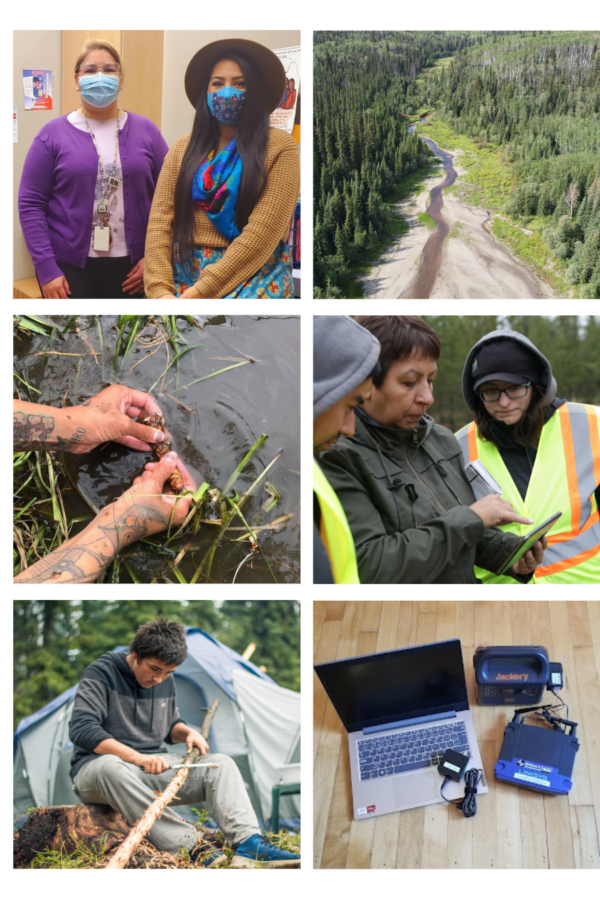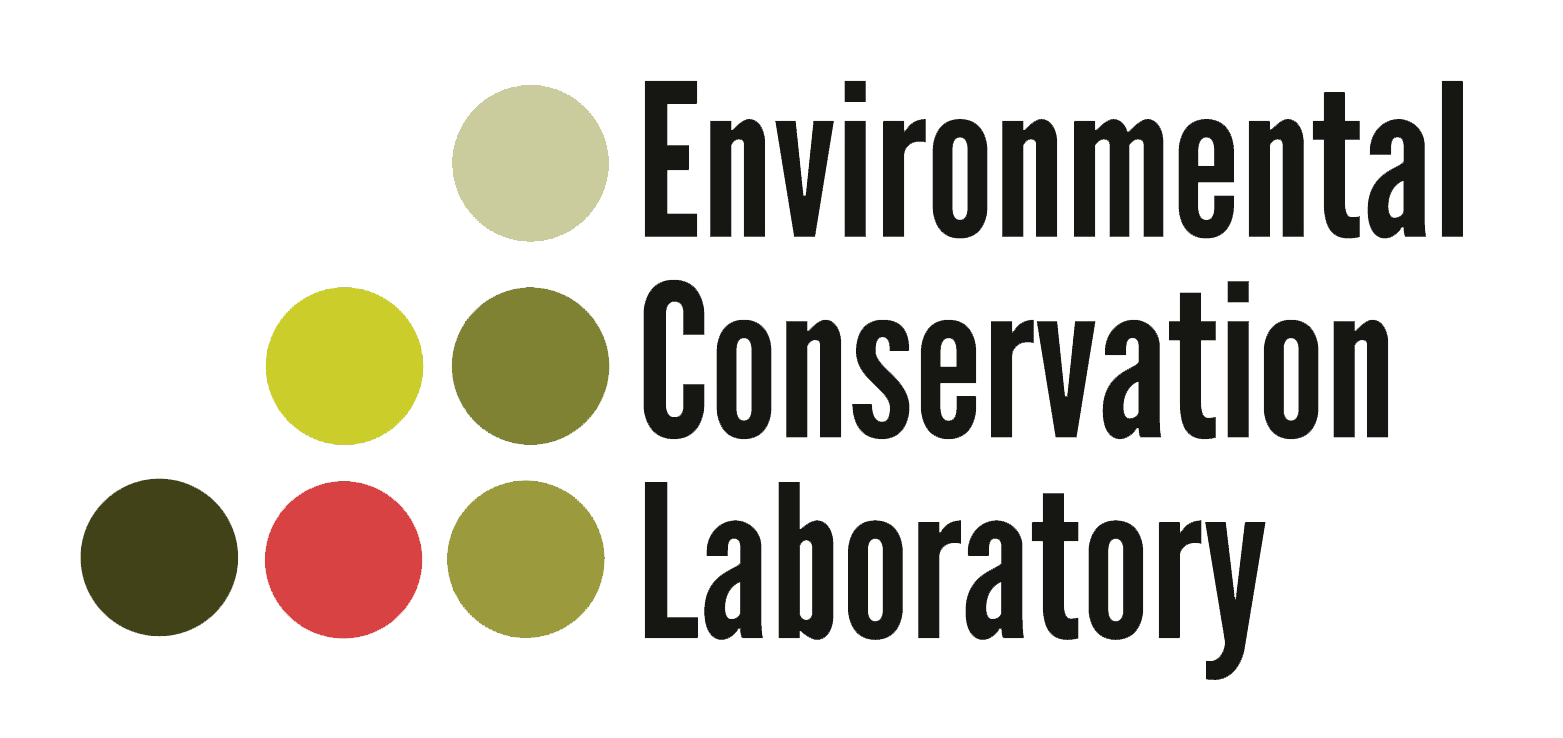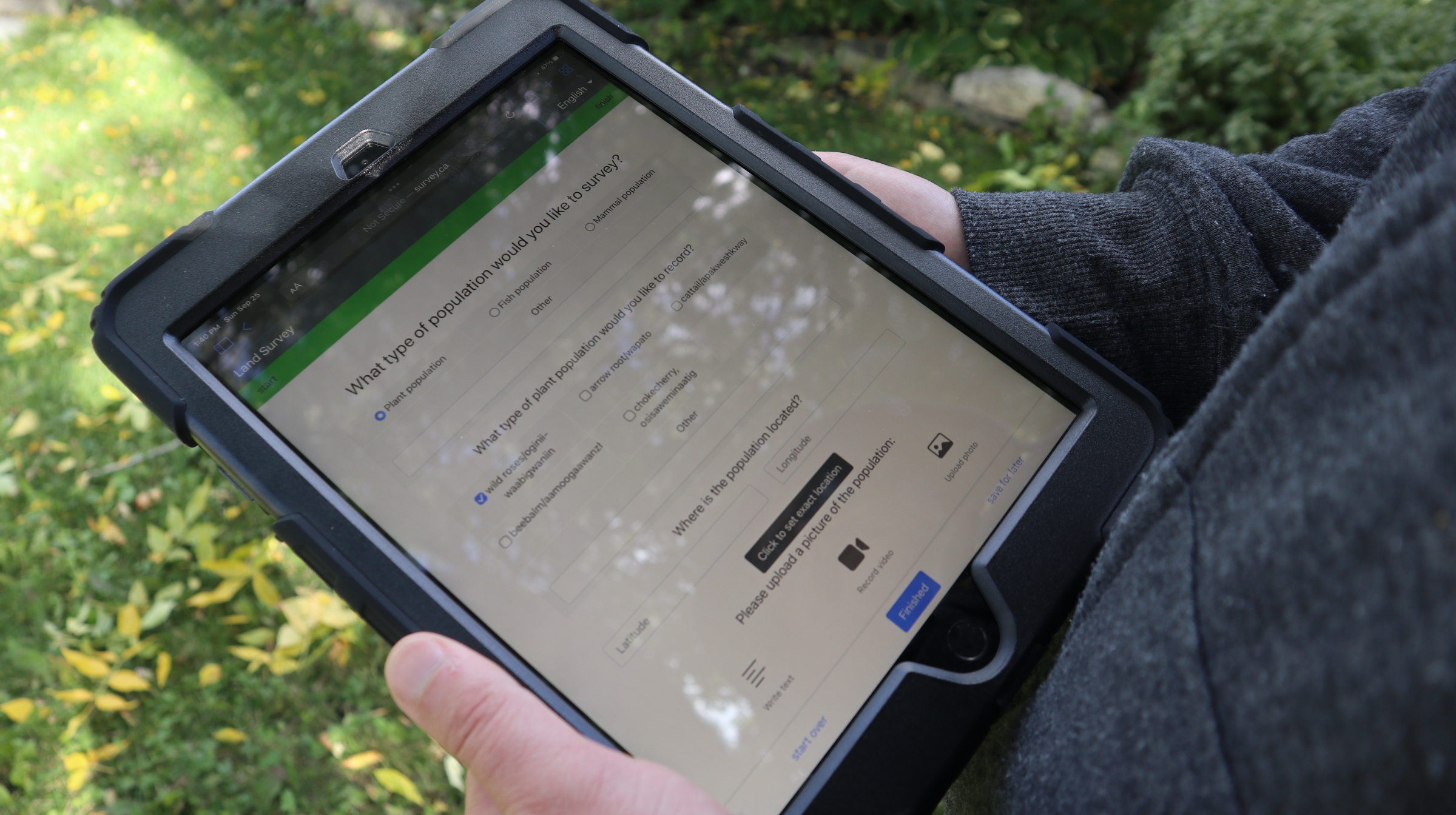Our Data Indigenous
About us
The Our Data Indigenous (ODI) app is a FREE survey-based app co-developed between research and Indigenous communities to address concerns around data and research sovereignty. The app is currently being utilized for a variety of projects across Canada and in Puerto Rico, including environmental monitoring, water sampling, community health and wellbeing, language revitalization, and more. The app has become a great tool for communities to be able to collect, maintain and store their own data, while ensuring that any information collected can be collected by the community and kept in the community. The digital app is open to anyone in Canada looking to collect and gather data in their community. It has been designed to be easy to use by community members and leadership.
It is important that research is done in a way that respects and acknowledges traditional knowledge and values of Indigenous Peoples. For this Digital App Project, each community will have complete control over their own data. Thus, it is vital that all data is owned and in complete control of the local Community, and will remain with the community.
To learn more, visit our webpage at https://ourdataindigenous.ca/

Our Partners
The Our Data Indigenous team is made up of a number of staff and researchers from the University of Manitoba, as well as an advisory council and our app development team. This group has been working to train communities to ensure they have all of the tools and resources needed to use the app on their own, and safely collect and store their own data.
Our Advisory Council
- Chief Shirley Ducharme and Rene Linklater, O-Pipon-Na-Piwin Cree Nation
- Dave Scott, Swan Lake First Nation
- Debbie Lipscombe and others, Grand Council Treaty #3
- Debbie Reid, Assembly of Manitoba Chiefs
- Donald and Phyllis Hart, Nisichawayasihk Cree Nation
- Dr Barry Lavalee, Manitoba Keewatinowi Okimakanak Inc.
- Dr Ramona Neckoway, Co-Investigative Researcher, University College of the North
- Esther Cook, Misipawistik Cree Nation
- Leona Star and others, First Nations Health and Social Secretariat of Manitoba
- Laurie Wood Ducharme, Bryon Beardy, Grace McDougall, and Jim Harrold, Four Arrows Regional Health Authority
Publications
UM researcher honoured for bringing unique app to communities
Alumnus Dr. Moneca Sinclaire, a member of the Opaskwayak Cree Nation and a researcher in the department of environment and geography at UM, helped develop a unique mobile app that empowers Indigenous communities to survey their populations about key health and social issues. For this work she is being honoured with the Mitacs Award for Outstanding Innovation—Indigenous, which is given by Mitacs, a non-profit national innovation organization that works with academic institutions.
The app was originally created to help communities address COVID-19 and has since grown to cover other pressing social concerns.
“Due to past historical events, many of the chiefs and council members have questions about who’s going to own the data and what’s going to be done with it,” Sinclaire [B.H.ECOL/89, MSc/97] says. “A big part of our role is to assure them that we’re trying to do research differently, not from the same Western perspective but research that’s for Indigenous people, by Indigenous people.”
First Nations’ compassionate approach a model for others: researchers
Instead of focusing on fines and snitch lines, governments should make more room in their pandemic response for collective, grassroots help for individuals and families who’ve contracted COVID-19, researchers say.
A team from the University of Manitoba suggests officials look to Indigenous communities for some answers about how to move beyond enforcement of public-health order violations.
Despite having some of the strictest lockdown measures, including checkpoints that require residents to show identification and obtain permission to travel off reserve, many First Nations communities have been able to harness community support to deliver care packages, meats and traditional medicines to families who are in isolation, the team says.
Stéphane McLachlan, a professor focusing on environmental health, and Myrle Ballard, an assistant professor and Indigenous scholar, received a federal grant to study how Indigenous communities are responding to the pandemic. They’re working with Evan Chamakese of Pelican Lake First Nation in northern Saskatchewan, who said despite many band councils’ strict orders, communities following their sacred teachings have been able to work together, taking a more compassionate approach.
“From what I’ve seen,” he said, “It’s not so much about the shaming or trying to place blame on people for bringing in this virus to the community, but it’s more of looking out for one another and taking care of (each other) because we’re all related.”
To view more of our publications, visit our website at https://ourdataindigenous.ca/about-the-app/in-the-media/
Visit our Website
Download the App Today
Apple Store: https://apps.apple.com/us/app/covid-19-indigenous/id1541905102
Google Play Store: https://play.google.com/store/apps/details?id=com.craigdietrich.covid19indigenous

